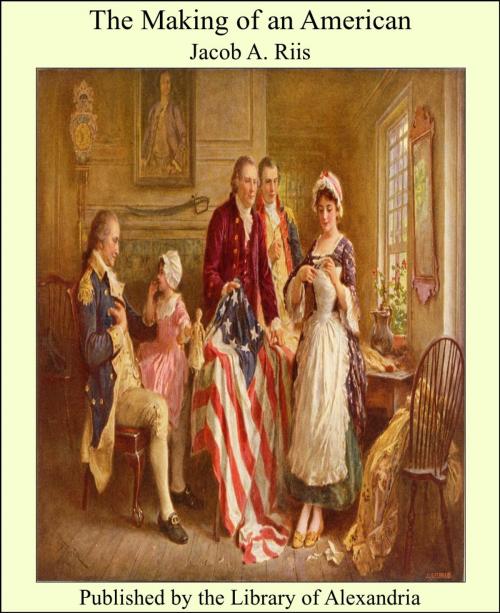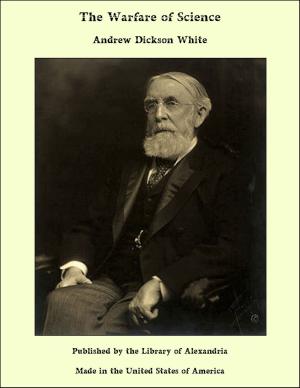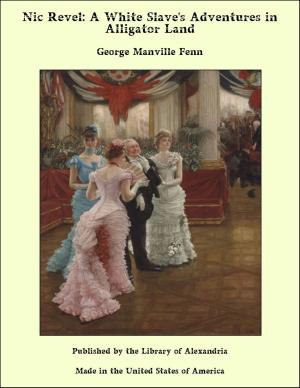The Making of an American
Nonfiction, Religion & Spirituality, New Age, History, Fiction & Literature| Author: | Jacob A. Riis | ISBN: | 9781465534200 |
| Publisher: | Library of Alexandria | Publication: | March 8, 2015 |
| Imprint: | Language: | English |
| Author: | Jacob A. Riis |
| ISBN: | 9781465534200 |
| Publisher: | Library of Alexandria |
| Publication: | March 8, 2015 |
| Imprint: | |
| Language: | English |
THE MEETING ON THE LONG BRIDGE On the outskirts of the ancient town of Ribe, on the Danish north seacoast, a wooden bridge spanned the Nibs River when I was a boy—a frail structure, with twin arches like the humps of a dromedary, for boats to go under. Upon it my story begins. The bridge is long since gone. The grass-grown lane that knew our romping feet leads nowhere now. But in my memory it is all as it was that day nearly forty years ago, and it is always summer there. The bees are droning among the forget-me-nots that grow along shore, and the swans arch their necks in the limpid stream. The clatter of the mill-wheel down at the dam comes up with drowsy hum; the sweet smells of meadow and field are in the air. On the bridge a boy and a girl have met. He whistles a tune, boy-fashion, with worsted jacket slung across his arm, on his way home from the carpenter shop to his midday meal. When she has passed he stands looking after her, all the music gone out of him. At the Other end of the bridge she turns with the feeling that he is looking, and, when she sees that he is, goes on with a little toss of her pretty head. As she stands one brief moment there with the roguish look, she is to stand in his heart forever—a sweet girlish figure, in jacket of gray, black-embroidered, with schoolbooks and pretty bronzed boots—“With tassels!” says my wife, maliciously—she has been looking over my shoulder. Well, with tassels! What then? Did I not worship a pair of boots with tassels which I passed in a shop window in Copenhagen every day for a whole year, because they were the only Other pair I ever saw? I don’t know—there may have been more; perhaps Others wore them. I know she did. Curls she had, too—curls of yellow gold. Why do girls not have curls these days? It is such a rare thing to see them, that when you do you feel like walking behind them miles and miles just to feast your eyes. Too much bOther, says my daughter. BOther? Why, I have carried one of your mOther’s, miss! all these—there, I shall not say how long—and carry it still
THE MEETING ON THE LONG BRIDGE On the outskirts of the ancient town of Ribe, on the Danish north seacoast, a wooden bridge spanned the Nibs River when I was a boy—a frail structure, with twin arches like the humps of a dromedary, for boats to go under. Upon it my story begins. The bridge is long since gone. The grass-grown lane that knew our romping feet leads nowhere now. But in my memory it is all as it was that day nearly forty years ago, and it is always summer there. The bees are droning among the forget-me-nots that grow along shore, and the swans arch their necks in the limpid stream. The clatter of the mill-wheel down at the dam comes up with drowsy hum; the sweet smells of meadow and field are in the air. On the bridge a boy and a girl have met. He whistles a tune, boy-fashion, with worsted jacket slung across his arm, on his way home from the carpenter shop to his midday meal. When she has passed he stands looking after her, all the music gone out of him. At the Other end of the bridge she turns with the feeling that he is looking, and, when she sees that he is, goes on with a little toss of her pretty head. As she stands one brief moment there with the roguish look, she is to stand in his heart forever—a sweet girlish figure, in jacket of gray, black-embroidered, with schoolbooks and pretty bronzed boots—“With tassels!” says my wife, maliciously—she has been looking over my shoulder. Well, with tassels! What then? Did I not worship a pair of boots with tassels which I passed in a shop window in Copenhagen every day for a whole year, because they were the only Other pair I ever saw? I don’t know—there may have been more; perhaps Others wore them. I know she did. Curls she had, too—curls of yellow gold. Why do girls not have curls these days? It is such a rare thing to see them, that when you do you feel like walking behind them miles and miles just to feast your eyes. Too much bOther, says my daughter. BOther? Why, I have carried one of your mOther’s, miss! all these—there, I shall not say how long—and carry it still















